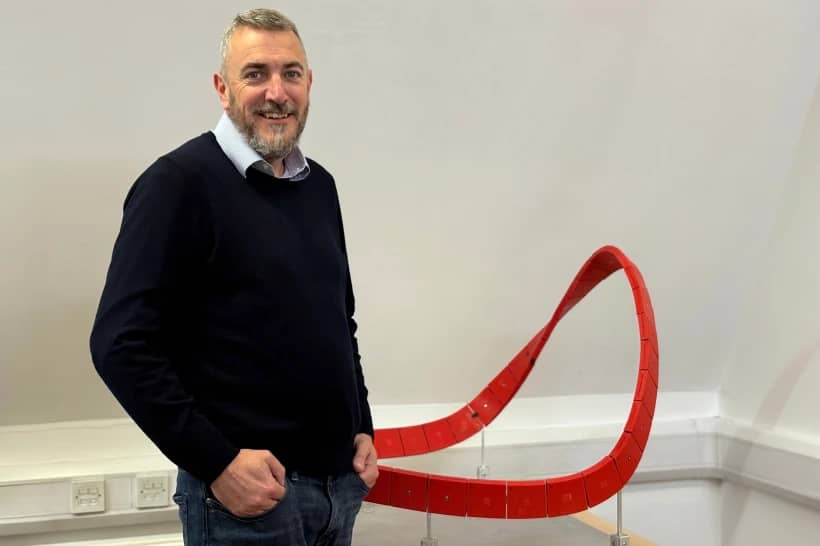LEICESTER, United Kingdom – In the wake of Ireland’s May 25 referendum legalizing abortion in the country, the Irish Labour Party has started a petition seeking a referendum to end religious schools in the country.
Unlike in the United States, the government funds religious schools in Ireland, and about 96 percent of elementary schools in the country are under the patronage of a religious group, and approximately 90 percent of these schools are run by the Catholic Church.
“It’s time for a national conversation about how we achieve a modern, secular and equality-based education system for the Ireland of today, and what we hope to achieve for tomorrow,” said the Irish Labour Party Education spokesperson, Senator Aodhán Ó Ríordáin.
Changing the education system would require amending the Irish Constitution, which guarantees the right of parents to send children to the school of their choice, including religious schools.
RELATED: Catholic schools in Ireland might lose right to choose their students
“Ireland is different now compared to when our constitution was written,” said Ó Ríordáin. “Religion should not be the overarching principle that underpins our education system, nor should it be the way by which children are segregated at a young age.”
The Labour Party proposal would effectively nationalize religious schools and ban religious instruction on their premises.
“What they envisage for Irish schools (huge State control) would go further than Britain, further than France even. It would go as far (curiously enough) as the US,” David Quinn, the director of the pro-family Iona Institute, said on Twitter.
Both Britain and France allow state funding for religious schools, although government control is stronger than it is in Ireland.
“We have a disproportionate influence of religious bodies over education in Ireland. Over 90 percent of primary schools are under religious control. It’s not reflective of the modern Ireland. And the only way we can deal with this effectively is to have a constitutional referendum to deal with the issue,” Ó Ríordáin said on July 17.
Senator Ged Nash said the proposal would still allow the study of religion in a broad sense.
“What we’re talking about is not to have a single emphasis on a particular religion and faith-based education, or religious instruction – that’s the difference,” Nash said. “It is important young people should have an understanding of religious traditions …The same could be said about introducing philosophy in schools.”
RELATED: Irish archbishop says “radical overhaul” needed in Church’s outreach to youth
Currently, just over 78 percent of the population describes itself as Catholic, a sharp decline from the 84 percent who said they were Catholic in 2011. Of that number, less than 30 percent attend Mass every week; it was over 87 percent just 20 years ago.
The numbers are even more striking when looking at young adults: The latest European Social Survey, released earlier this year, shows only 54 percent of people between the ages of 16-29 identify as Catholic, and less than 25 percent claim to attend Mass weekly.
One of the most Catholic countries in Europe, revelations about clerical sexual abuse have left public confidence in the Church at its lowest level in history.
Irish society is becoming more secular as a result: Three years ago, 62 percent of the voters chose to legalize same-sex marriage in Ireland.
The Irish Labour Party is not a major force in Irish politics, although it has been a recent coalition partner of the current ruling party, Fine Gael. The current Irish President Michael Higgins, a purely ceremonial role, headed the Labour Party until being elected president in 2011.
However, after the 2016 election, it received only 7 seats in the Irish parliament.
Still, Ó Ríordáin said he spoke with Irish Prime Minister Leo Varadkar about his proposal, and recounted the prime minister said it was “certainly something … I will consider.”
Varadkar’s government has already announced plans to prohibit Catholic primary schools – but not schools from minority denominations such as the (Anglican) Church of Ireland – from giving priority to students based upon their religion.
RELATED: Archbishop says Pope Francis ‘will not work miracles’ in Ireland
Ireland’s Catholic leaders have acknowledged growing secularism might change the way schools are run in the country, although they see the Church as still having an important place in education.
The Archbishop of Dublin, Diarmuid Martin, has suggested the Church divest itself of some of its schools, while the Archbishop of Armagh, Eamon Martin, said he wasn’t “married” to the idea of preferential access of Catholics to the Church’s schools.
Meanwhile, the Irish government is holding a referendum in October to remove the offense of blasphemy from the constitution.
And on Tuesday, the Irish Minister for Health, Simon Harris, called for a referendum to change the definition of family in the Irish constitution, so that non-parents can be given more rights over children in certain cases.
Coincidentally, Pope Francis will be visiting Dublin Aug. 25-26 when the Irish capital hosts the Vatican-sponsored World Meeting of Families.
















